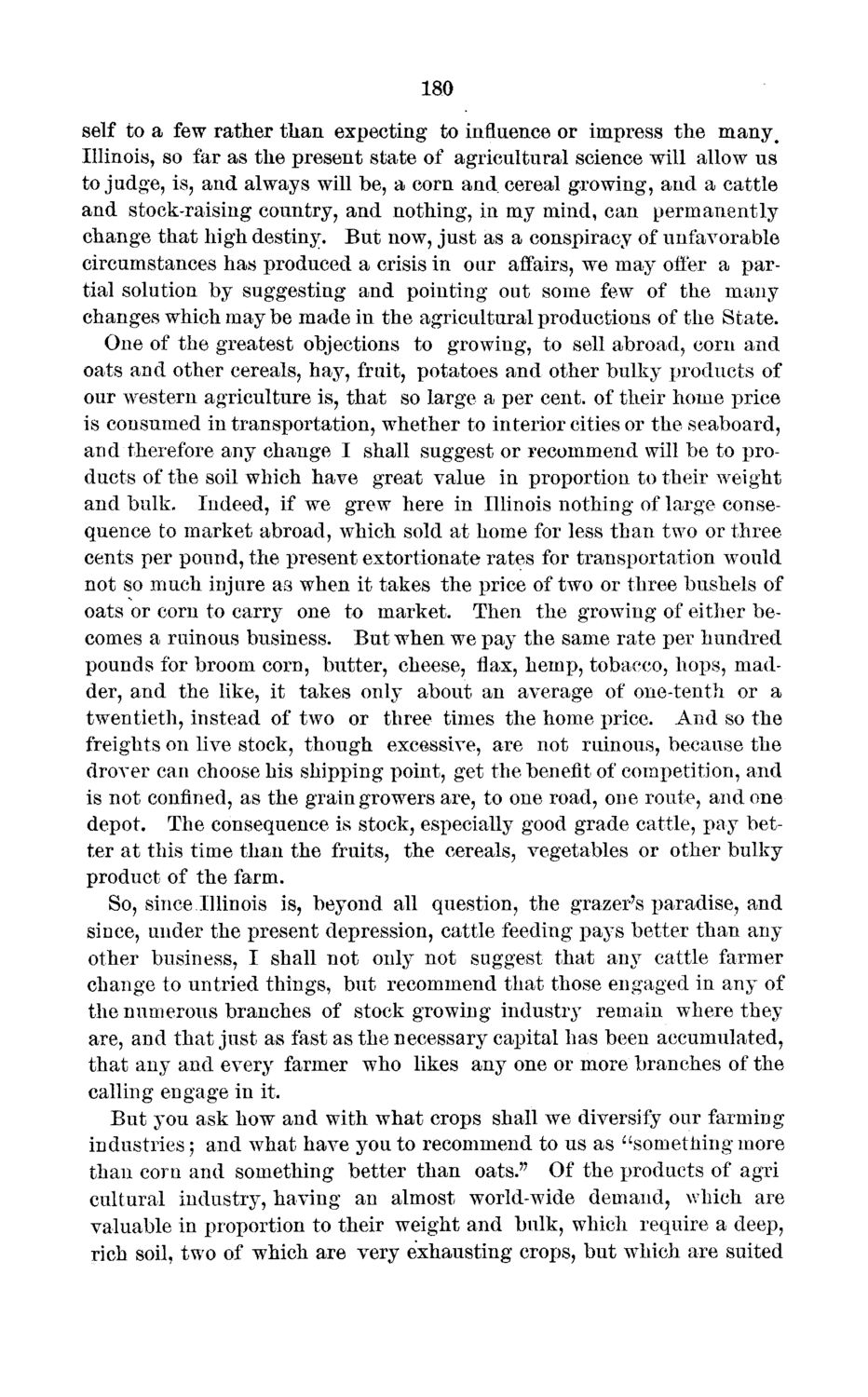| |
| |
Caption: Board of Trustees Minutes - 1873
This is a reduced-resolution page image for fast online browsing.

EXTRACTED TEXT FROM PAGE:
180 self to a few rather than expecting to influence or impress the many. Illinois, so far as the present state of agricultural science will allow us to judge, is, and always will be, a corn and cereal growing, and a cattle and stock-raising country, and nothing, in my mind, can permanently change that high destiny. But now, just as a conspiracy of unfavorable circumstances has produced a crisis in our affairs, we may offer a partial solution by suggesting and pointing out some few of the many changes which may be made in the agricultural productions of the State. One of the greatest objections to growing, to sell abroad, corn and oats and other cereals, hay, fruit, potatoes and other bulky products of our western agriculture is, that so large a per cent, of their home price is consumed in transportation, whether to interior cities or the seaboard, and therefore any change I shall suggest or recommend will be to products of the soil which have great value in proportion to their weight and bulk. Indeed, if we grew here in Illinois nothing of large consequence to market abroad, which sold at home for less than two or three cents per pound, the present extortionate rates for transportation would not so much injure as when it takes the price of two or three bushels of oats or corn to carry one to market. Then the growing of either becomes a ruinous business. But when we pay the same rate per hundred pounds for broom corn, butter, cheese, flax, hemp, tobacco, hops, madder, and the like, it takes only about an average of one-tenth or a twentieth, instead of two or three times the home price. And so the freights on live stock, though excessive, are not ruinous, because the drover can choose his shipping point, get the benefit of competition, and is not confined, as the grain growers are, to one road, one route, and one depot. The consequence is stock, especially good grade cattle, pay better at this time than the fruits, the cereals, vegetables or other bulky product of the farm. So, since Illinois is, beyond all question, the grazer's paradise, and since, under the present depression, cattle feeding pays better than any other business, I shall not only not suggest that any cattle farmer change to untried things, but recommend that those engaged in any of the numerous branches of stock growing industry remain where they are, and that just as fast as the necessary capital has been accumulated, that any and every farmer who likes any one or more branches of the calling engage in it. But you ask how and with what crops shall we diversify our farming industries 5 and what have you to recommend to us as "something more than corn and something better than oats." Of the products of agri cultural industry, having an almost world-wide demand, which are valuable in proportion to their weight and bulk, which require a deep, rich soil, two of which are very exhausting crops, but which are suited
| |